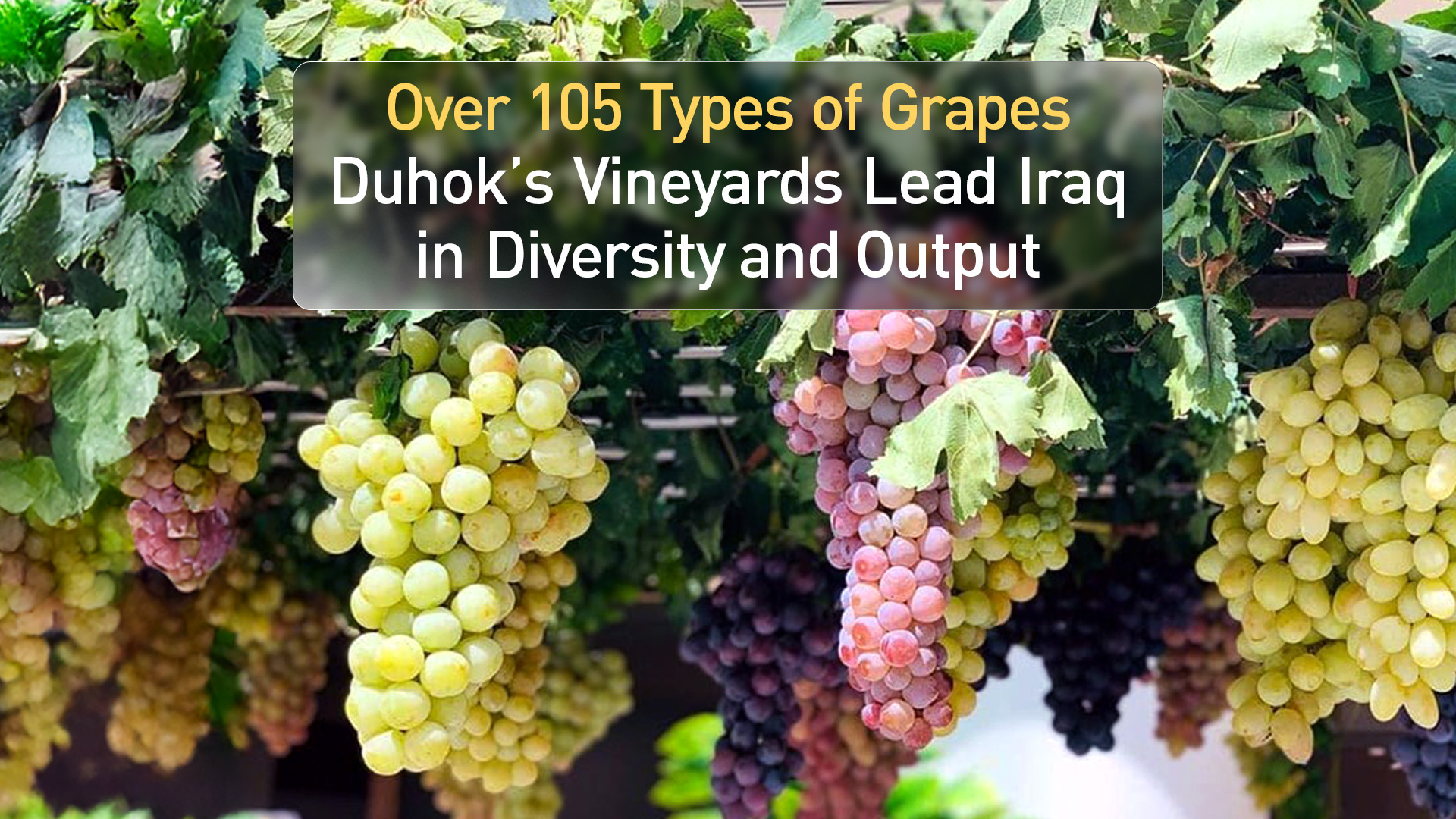Duhok Targets 60,000-Ton Grape Harvest with New Factories Boosting Market Stability
Duhok expects a 60,000-ton grape harvest this year, with new factories set to solve market surplus issues. The success is credited to the KRG's broader agricultural support and economic diversification strategy, positioning the province as Iraq's top grape producer.

ERBIL (Kurdistan24) – Officials in Duhok province are anticipating a grape harvest of 60,000 tons this year, a significant output bolstered by the establishment of new processing factories designed to solve the long-standing challenge of selling surplus produce. The development, credited to the strategic support of the Kurdistan Regional Government's (KRG) ninth cabinet, reinforces the province's status as the premier grape-producing region in all of Iraq.
In an exclusive statement to the Kurdistan24 website on Sunday, Ahmed Jamil, the Director General of Duhok Agriculture, announced that the KRG's focused attention on the agricultural sector has been instrumental in revitalizing domestic products.
He highlighted Duhok province as a prominent example of this progress, particularly in viticulture, where it has firmly established a leading position. "Duhok province is famous for grape production and according to statistics, it has approximately 39,000 donums of land planted with vineyards," Jamil stated. "This has enabled it to achieve the top rank in grape production across Iraq."
The province's agricultural richness is not only in quantity but also in diversity. Jamil added that "more than 105 different types of grapes are produced in this province, some of which are rare even on a global level."
This remarkable variety is a point of local pride and is regularly celebrated in special exhibitions and festivals designed to showcase the unique agricultural product, such as the annual Duhok Grape and Honey Fair.
These events have previously highlighted the deep expertise of local growers, including farmers like Abdulrahman Sleman Bageri, who, as reported by Kurdistan24 in 2022, has cultivated over 50 different types of grapes on his farm alone since starting in 1976.
A pivotal development this year is the resolution of what has historically been a major hurdle for these farmers: market access for their abundant harvests.
"Previously, one of the main problems for farmers was selling their produce," Ahmed Jamil noted. "However, now, thanks to the government's steps and the involvement of investors, this problem has been solved."
This has been a long-standing concern, with farmers like Bageri previously telling Kurdistan24 that the province produces far more than it can consume locally, making factories and export facilitation a necessity.
Jamil confirmed that this need is now being met through the establishment of several factories for making juice and other grape-based products.
He detailed that one such factory in the Mangesh area is now complete and will begin receiving grapes from farmers this year.
Furthermore, a larger project is currently in the implementation phase in the Semel district, with a special warehouse allocated for it. These industrial projects are seen as crucial steps in creating a sustainable market for produce that exceeds local demand.
According to Jamil, this progress is a direct result of the KRG's continuous support, which has included providing financial assistance, offering ongoing guidance to farmers, and supplying new types of grapes that are compatible with the region's climate.
The 60,000-ton projection for this year represents a significant increase from the 48,000 tons produced last year, an uptick attributed to favorable weather conditions. While production fluctuates—with over 77,000 tons recorded in 2021, according to Duhok Agricultural Directorate figures—the new industrial infrastructure provides a level of market stability previously unseen.
This success story in Duhok's vineyards is a microcosm of a broader, region-wide agricultural revival driven by the KRG's ninth cabinet under Prime Minister Masrour Barzani.
Since 2019, the administration has prioritized agricultural reform to diversify an economy historically dependent on oil revenues, increasing the sector's budget share from 1.5% to nearly 10%. This strategy has encompassed building modern infrastructure, including new wholesale markets and grain silos, and aggressively seeking international markets for Kurdish produce.
Through initiatives like the Kurdistan Agriculture Export Initiative (KAEI), the region began its first-ever non-oil exports in 2022, sending high-quality pomegranates from Halabja to Gulf and European markets.
This has since expanded to include apples, honey, potatoes, and other products, building a global brand for Kurdish agriculture.
This comprehensive approach—combining infrastructure development, market access, direct farmer support, and environmental sustainability—is steadily transforming the vision of a revitalized agricultural sector into a tangible reality, with Duhok's thriving vineyards serving as a prime example of its success.
